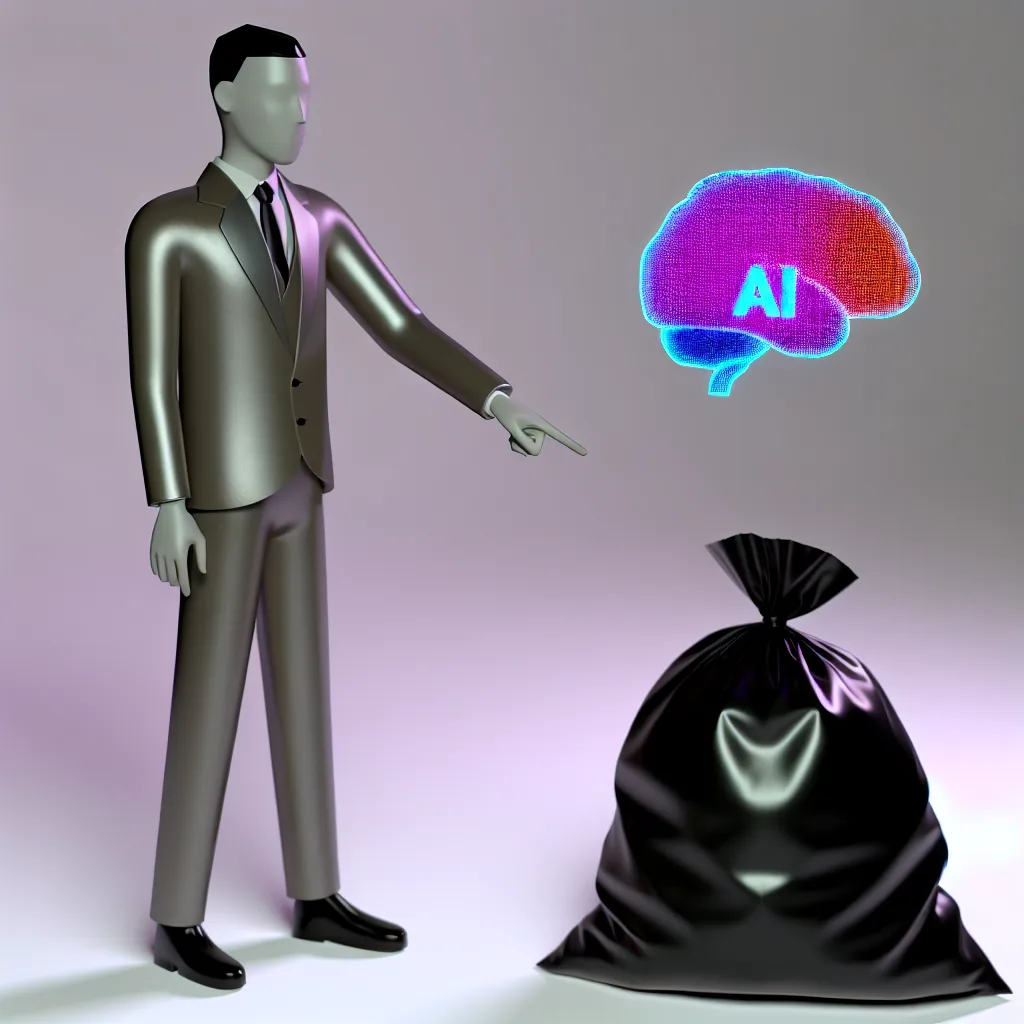Forget ‘the dog ate my homework.’ The latest excuse for everything from viral videos to political gaffes involves pointing a finger at a mischievous algorithm.
It feels like just yesterday the ultimate excuse for anything was, “Sorry, I have bad Wi-Fi.” But it seems we’ve officially entered a new era of creative blame-shifting. The new go-to? Blaming AI. And honestly, it’s already getting weirdly specific and surprisingly bold.
I’m talking about a moment from this past week that felt like a scene straight out of a political satire. A video started making the rounds online showing a plain black trash bag being unceremoniously tossed out of a second-floor window of the White House. It was a bit odd, sure, but not exactly earth-shattering. When reporters asked former President Trump about it, his response wasn’t about spring cleaning or renovations.
His answer? “That’s probably AI-generated.”
Let that sink in. Not a contractor, not a staffer, but a rogue algorithm deciding to digitally create a video of flying rubbish. The excuse is almost more interesting than the event itself. It’s the digital equivalent of telling your teacher the dog ate your homework, except the dog is now a superintelligent computer.
The Problem with Blaming AI
The thing is, we already knew the real story. The New York Times had reported, and the White House itself had confirmed, that contractors were doing renovation work and were simply throwing out trash. It was mundane, logical, and completely non-AI-related.
What makes the whole exchange even more bizarre is that Trump apparently doubled down on the claim. He insisted that the White House windows are bulletproof and can’t be opened—a statement made right after watching a video that clearly showed one of the windows, well, open.
This is a perfect example of how blaming AI has become such a convenient, catch-all defense for anything you don’t like or want to explain. Because for most of us, AI is still a kind of mysterious black box. We know it’s powerful and capable of creating fake images and videos (often called “deepfakes“), but few of us understand exactly how it works. That lack of public understanding creates a perfect space for doubt. If you can’t say for sure that AI didn’t do it, then the excuse hangs in the air, just plausible enough to deflect.
Is AI the New Scapegoat for Everything?
This incident is funny, but it points to a much bigger, and slightly more concerning, trend. If a public figure can use “it was AI” to deny something as trivial as a trash bag video, where does it end?
It’s easy to see this trickling down into our everyday lives.
* At work: “I swear I sent that report. The company’s AI firewall must have eaten it.”
* In social situations: “I didn’t leave you on read, my phone’s AI assistant decided you weren’t a priority contact.”
* On social media: “I definitely didn’t tweet that at 3 AM. My account must have been hacked by ChatGPT.”
When technology becomes a scapegoat, it slowly chips away at accountability. It blurs the line between reality and fiction, making it harder to agree on basic facts. In an age where digital literacy is more important than ever, learning to question these kinds of deflections is crucial. Organizations like the Poynter Institute have been champions of media literacy for years, but the rise of AI adds a whole new layer of complexity.
So, while the flying White House trash bag might be a funny headline for September 2025, it’s also a little preview of our future. A future where “a robot did it” might become the most common, and most frustrating, excuse of them all.
What’s the wildest thing you think someone will try to blame on AI next? I’m genuinely curious.
